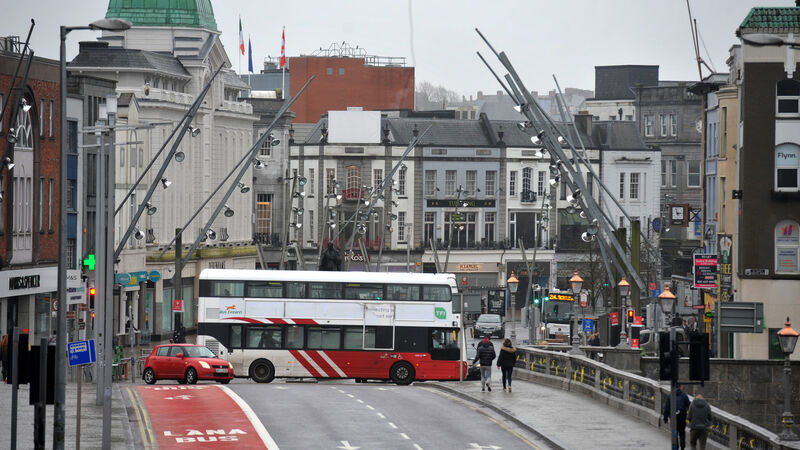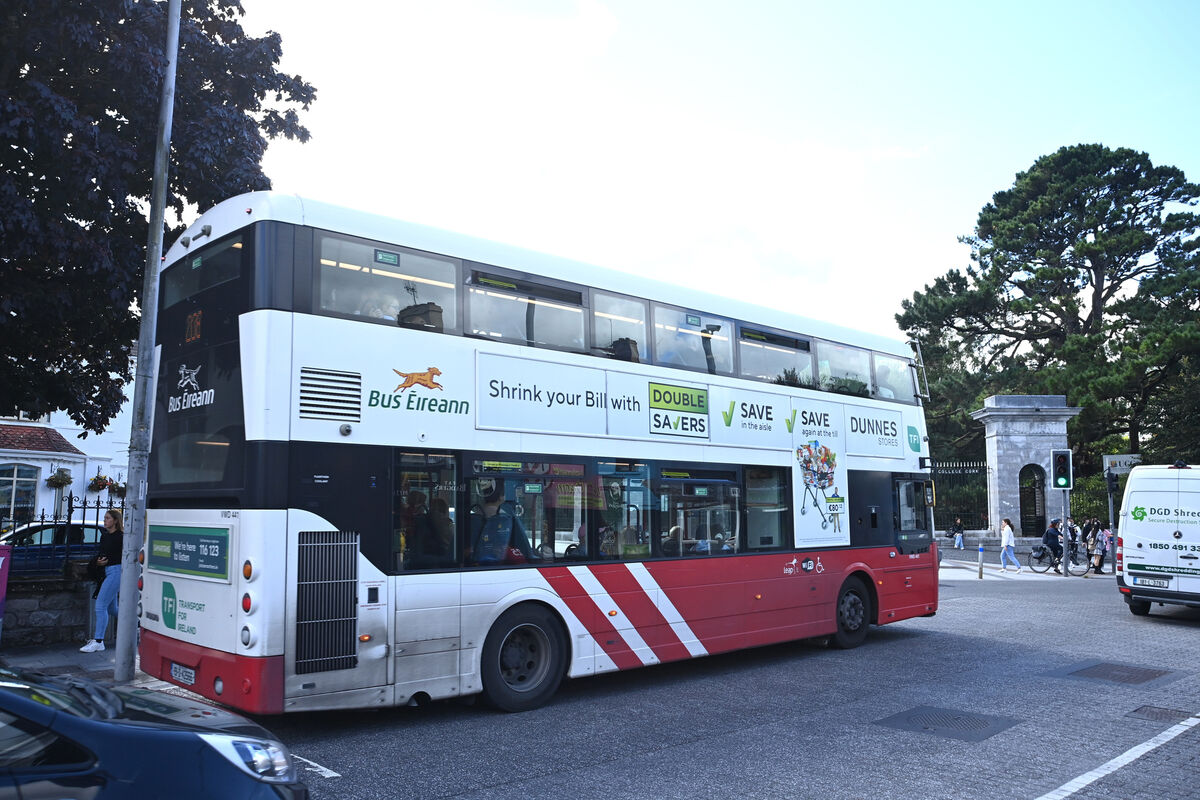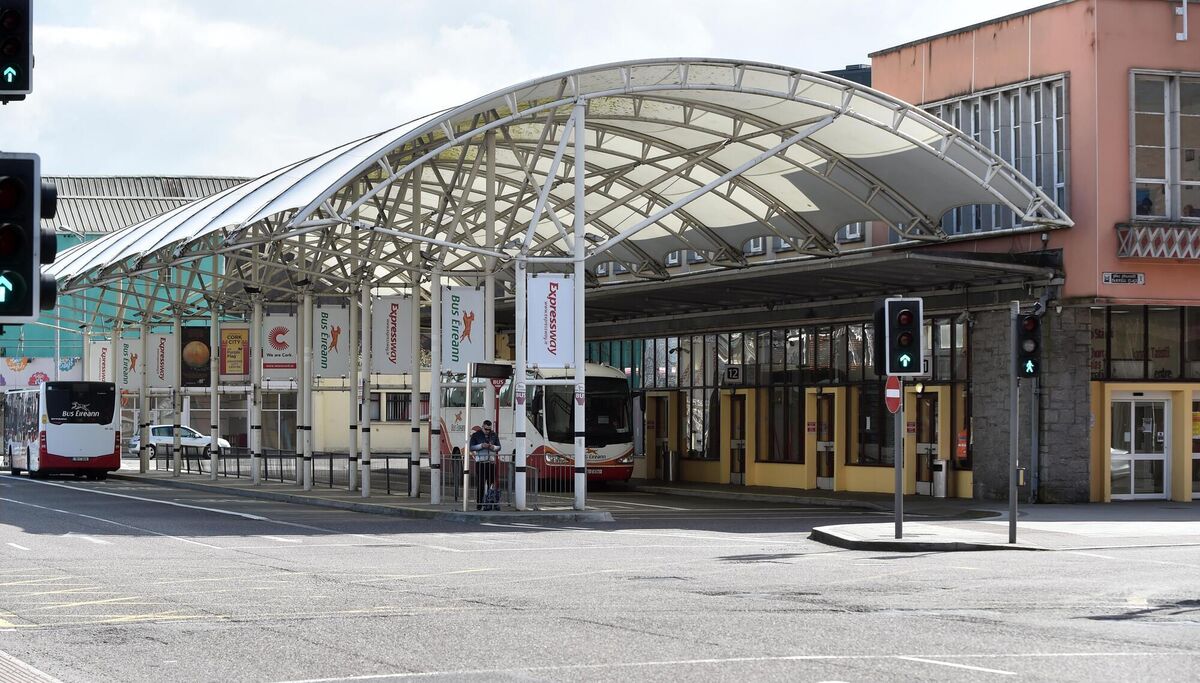Michael Moynihan: BusConnects will have a job reconnecting the people of Cork to its bus services

There was a time when public transport had an emphasis on the public. File picture: Larry Cummins
One of the research assistants at home was recently planning a trip to town with her gang.
Negotiations broke down on a particular sticking point. Namely, co-ordinating two different pals getting on the same bus so everyone could meet up when the bus came to a particular stop . . . anyone with experience of teenagers’ organising skills will recognise that this is like three badgers working out close harmonies. Truly it defieth all human understanding.
This is not a criticism of the bus service, which occupies a treasured place in Moynihan family lore going back to a distant relative: as a toddler back in the mid-sixties he pulled a pot of hot tea down on himself, with scalding results.
His father gathered him up and ran out into the street, flagging down a passing bus. When the driver saw what had happened he drove them straight to the North Infirmary, far from his prescribed route, with the full encouragement of the passengers on board.
Years later I remember being on the old number 12 as it wheezed up past Dillon’s Cross on its long and winding road to Dublin Hill, apart from one non-official stop. The driver disembarked with a bag of groceries at the turn past Mount Farran, hurried into a house, then trotted back onto the bus to resume the journey.
Again, no complaints, though maybe that was because no-one could see what was happening through the fog of cigarette smoke in the bus. (Not everything was perfect back in the old days, admittedly.)

But there was a time when public transport had an emphasis on the public. It was a shared experience, and going back the decades sharing was the key element. A century ago ‘the man on the Clapham omnibus’ was a proverbial indicator of common sense and reasonable opinion.
The idea that travelling on public transport made you representative of the populace had a fair longevity to it: trace elements survived almost to our own time. Remember the TV advertisement a few years back in which a regular punter admitted that he didn’t know what a tracker mortgage was?
He did so by informing his fellow passengers on a bus. When did all of this change, and why?
Far more people own cars now, certainly. You can find statistics showing that private car ownership in Ireland almost doubled between 1990 and 2020.
I recall a statistician at an Oireachtas committee meeting during the Celtic Tiger years pondering this development: with full employment, he mused, people who couldn’t afford a house were buying cars to have something to show for their wages.
That’s a significant change from times past. If, like your columnist, you were playing matches as a kid in the early 80s you probably have fond memories of being squeezed into old cars to be ferried to the likes of the Tank Field or Lehenaghmore, seven or eight players to a vehicle.
Nowadays those players tend to be single passengers in one car. More car use. And more car use means less bus use. Is bus travel out of favour for other reasons?
Notoriously, Margaret Thatcher is supposed to have said: “If a man finds himself a passenger on a bus having attained the age of 26, he can count himself a failure in life.” Never mind the fact that many people would rather swallow sandwiches of ground glass in mayonnaise rather than follow Thatcher’s advice. Or that it has never been proven beyond doubt that she even made the comment, or any variation thereof.
It’s a plausible suggestion — not so much describing someone as a failure if they’re hopping a bus to Mahon Point as identifying the bus’s lack of appeal. That hasn’t improved in recent times.
I mentioned the Thatcher quote in this column three years ago, but you don’t have to go back that far to get a sense of what bus travel in Cork is like now. Just look at a series of headlines in this newspaper over the last few months.
Going back to February local representatives in Cork were up in arms about the bus service on Leeside, and anxious for answers from the very top (“Councillors to complain to Transport Minister over 'shocking' unreliable bus service in Cork”).
The following month there was a response: “Cork bus routes to be reviewed amid reliability concerns” (‘Eamon Ryan confirmed three bus routes — the 220, 225, and 226 — are under review’.) Good news?
On paper, yes. But as recently as last month there were ongoing issues with services being cancelled — “Bus Éireann recruiting drivers in Cork after cancelled services over bank holiday weekend” was the headline.
The background to that story was worth teasing out. We learned that at an appearance before the Oireachtas transport committee in May Bus Éireann CEO, Stephen Kent, said the company will need an extra 2,000 drivers to meet “unprecedented” demand over the next three years, with drivers and mechanics in short supply mainly in Dublin and Cork.
In fact, he added that Cork is proving to be “the most challenging” region to get staff to work in. Why so bad right here, right now?
The bad news doesn’t stop there, either. Many readers may be aware that many of the seats intended for weary travellers in the main bus station in Cork, on Parnell Place, were closed to the public for quite some time — taped off and inaccessible. They probably made quite an impression on visitors landing in Cork at the bus station for the first time.
Yesterday I dropped in. The tape is gone from the seats, thankfully. But the three ticket machines in the station had signs telling customers they don’t accept card payments.
Looking around, the ticket windows were closed and curtained. The ‘travel centre’ next to those was shut, with another sign: Lost Property Only (Monday-Friday, 2-3.30pm). The signs to the toilets upstairs were a reminder of how remote those facilities are from the main part of the station, particularly for small children or the elderly who are disembarking after long journeys.

(Walking over to Merchant’s Quay afterwards it was notable that a brief bus lane there was of little benefit given the . . . buses collecting passengers a few yards further on.)
The obvious retort is that there are plans to improve this with BusConnects, the now famous plan to revamp the bus system in Cork which has been rumbling along since 2021 and which may not even come before An Bord Pleanála until next year.
What about right now, though? BusConnects is no doubt a huge boon to consultants of various kinds, but it is of little use to those trying to use bus services at present. In the real world. Today.
Those services are suffering — from declining attractiveness and greater car use generally, as well as specifics such as unreliable services, unappealing locations, and lack of drivers and mechanics. The latter problems can and should be addressed immediately. If people lose the habit of using the bus it can be hard to get them to rediscover it.






